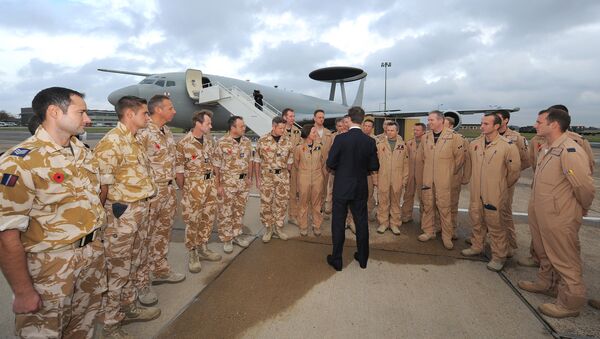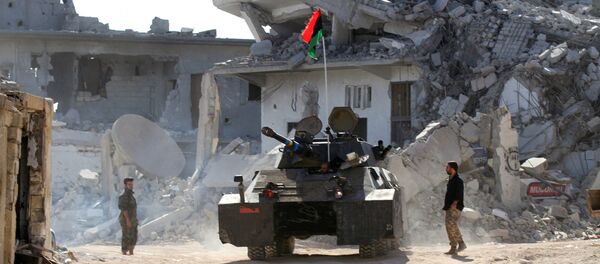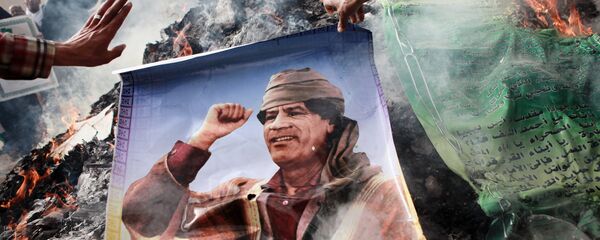On Friday the British government responded to a report from the UK parliament's Foreign Affairs Committee that criticized the government's role in the 2011 Libya intervention which led to the overthrow and murder of leader Muammar Gaddafi, and since then civil war and the increased presence of Islamic extremists such as Daesh.
The report had found that the UK's Libya policy was based on "erroneous assumptions and an incomplete understanding of the evidence," "could not verify the actual threat to civilians posed by the Gaddafi regime," and "selectively took elements of Muammar Gaddafi's rhetoric at face value."
Responding to the criticism on Friday, the UK Foreign Office failed to acknowledge its policy failures in Libya, and said that "our objective remained clear at all times: to protect civilians and to promote stability in Libya."
"The actions of the UK and the Coalition undoubtedly saved the lives of innocent Libyan civilians," the government said.
David Coburn, leader of the UK Independence Party in Scotland, told Radio Sputnik that like its other Middle Eastern interventions, the UK government intervened in Libya "without due thought to what we were actually trying to achieve."
"A lot of people at the time thought the government was just trying to get Brownie points for themselves, and quite possibly that's what they were trying to do," Coburn said.
"You judge the pudding by the eating, and the results of their recipe have not been very good."
Coburn said the most important thing is to learn from the mistakes of the past, and endeavor not to repeat them. This means not pursuing "regime change" in Syria, but working with the Syrian government, and Russia, in order to maintain stable government and power vacuum for terrorists to take hold of.
"What we should do is learn from the mistakes of the past, and don't continue to repeat them, and we seem to be repeating them in Syria, this same nonsense. We need to have a stable government of some description in Libya, something that will keep Daesh and people like that out, we need to keep stable governments in the Middle East because otherwise you leave a vacuum."
"The Americans under the new President-elect Trump do seem to be engaging with the Russians over these matters and I think we should be too, we should start behaving more sensibly," Coburn said.
In September, the UK parliament's Foreign Affairs Committee published its report on the UK's foreign policy in Libya before, during and after the 2011 intervention. In the damning report, the committee said that the UK, which proposed United Nations Security Council Resolution 1973 along with France and Lebanon, didn't carry out a proper intelligence analysis before intervening in Libya.
Despite that, the Foreign Affairs Committee report found that "a limited intervention to protect civilians drifted into a policy of regime change by military means."
MP's said that the UK should have pursued political means to resolve the conflict in Libya, for example by exploiting former Prime Minister Tony Blair's personal relationship with Gaddafi.
They also criticized the government for failing to provide for the country's reconstruction after the intervention. The UK, which spent some £320 million on bombing Libya, spent just under half as much money (48.72%) on rebuilding the country.




